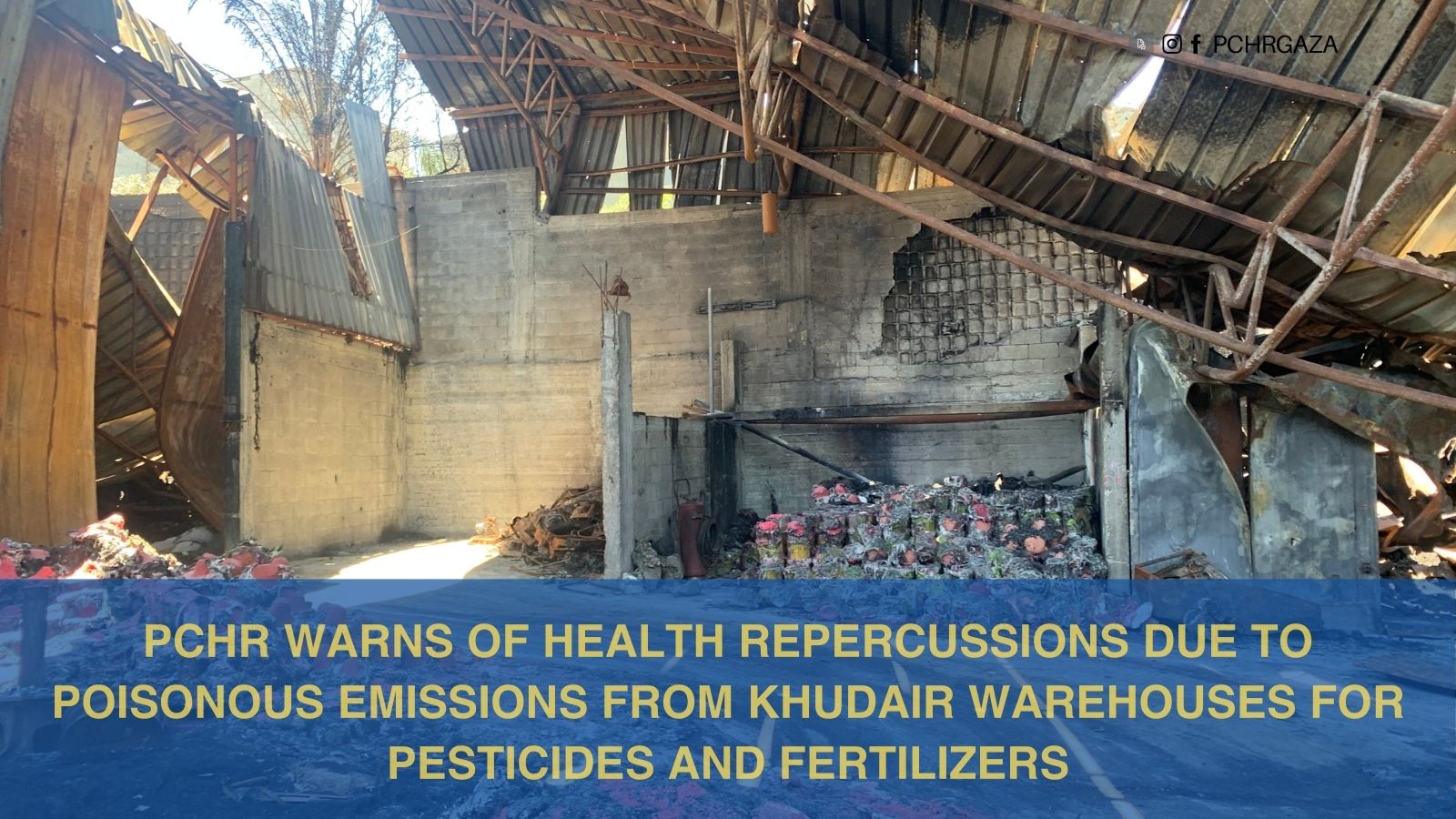
Ref: 117/2021
Date: 15 September 2021
Time: 08:00 GMT
The Palestinian Centre for Human Rights warns that serious repercussions on health may result from the poisonous emissions across Beit Lahia coming from the Khudair Warehouses for Pesticides and Fertilizers which was bombed by the Israeli occupation forces in its military offensive on Gaza in May 2021. The bombing destroyed the warehouses and set them on fire. PCHR points out that there may be extremely dangerous consequences due to the negligence in removing debris from the area, especially as there have been reports of health issues among the community, including rashes, infertility, and miscarriages, and breathing difficulties. PCHR also warns that if these poisonous materials were to infiltrate into the underground, it could poison the underground water, especially if it rains.
On 15 May 2021, IOF -without prior warning- bombed the warehouses of the Khudair Company for Agricultural Supplies, owned by Mahmoud I. Khudair, and Medor Company for Agriculture, owned by Suhail Khudair. Both companies had 6 warehouses built on an area of 4.5 dunums. The warehouses are located by the Beit Lahia sea shore in northern Gaza Strip. The unjustifiable bombing destroyed the warehouses and set them on fire, including all contents. The fire was raging for 12 days as the Palestinian Civil Defense was unsuccessful in putting it out.
Four months later, smoke continues to come out of the area where the warehouses were, exuding a foul smell and emissions of poisonous gas that cannot be withstood. This situation is affecting more than 3,000 persons living in the area. PCHR fears that this situation may impact public health and the environment.
PCHR has received information and complaints from community members that report the presence of rashes on persons living in the area, and 3 women miscarried for unknown reasons since the bombing occurred on 15 May – including Khudair’s daughter.
PCHR reached out to health and environment experts and they expressed their fears that these poisonous materials may infiltrate to the underground during the winter when rain comes; thus, poison the underground water in the area.
In this regard, PCHR emphasizes that the Israeli occupation forces targeted the abovementioned warehouses without any justification or military necessity, as the targeted area is located 3 kilometers away from the northern borders of the Gaza Strip, and the area witnessed no violence during the Israeli offensive on the Gaza Strip. Furthermore, IOF are well aware of the location of the warehouses, the agricultural materials, and chemical fertilizers that the warehouses contained, and the catastrophic impact of targeting such an establishment would have on the residents in the area.
PCHR highlights that the warehouses belong to Khudair and Medor companies, both leading companies in this field in the Gaza Strip who cover almost about 55% of the agricultural market’s needs in the Gaza Strip. Additionally, these two companies are legally licensed and they import most of their fertilizers and agricultural pesticides from Israel, China, Turkey, Russia, Spain, India, Italy, Jordan, etc., officially through Ashdod seaport, and then they enter the Gaza Strip through “Karem Abu-Salem” crossing.
In light of the above, PCHR calls upon the competent authorities in the Gaza Strip to intervene immediately to remove these materials or vacate residents living in the area not only to avoid the non-stop foul smell, but also to spare them the serious health effects that may impact them.
PCHR also calls upon international experts and organizations to contribute to removing the debris caused by the bombing, particularly due to the lacking capacities at the Palestinian Ministries of Agriculture and Environment, as well as the Water Authority.